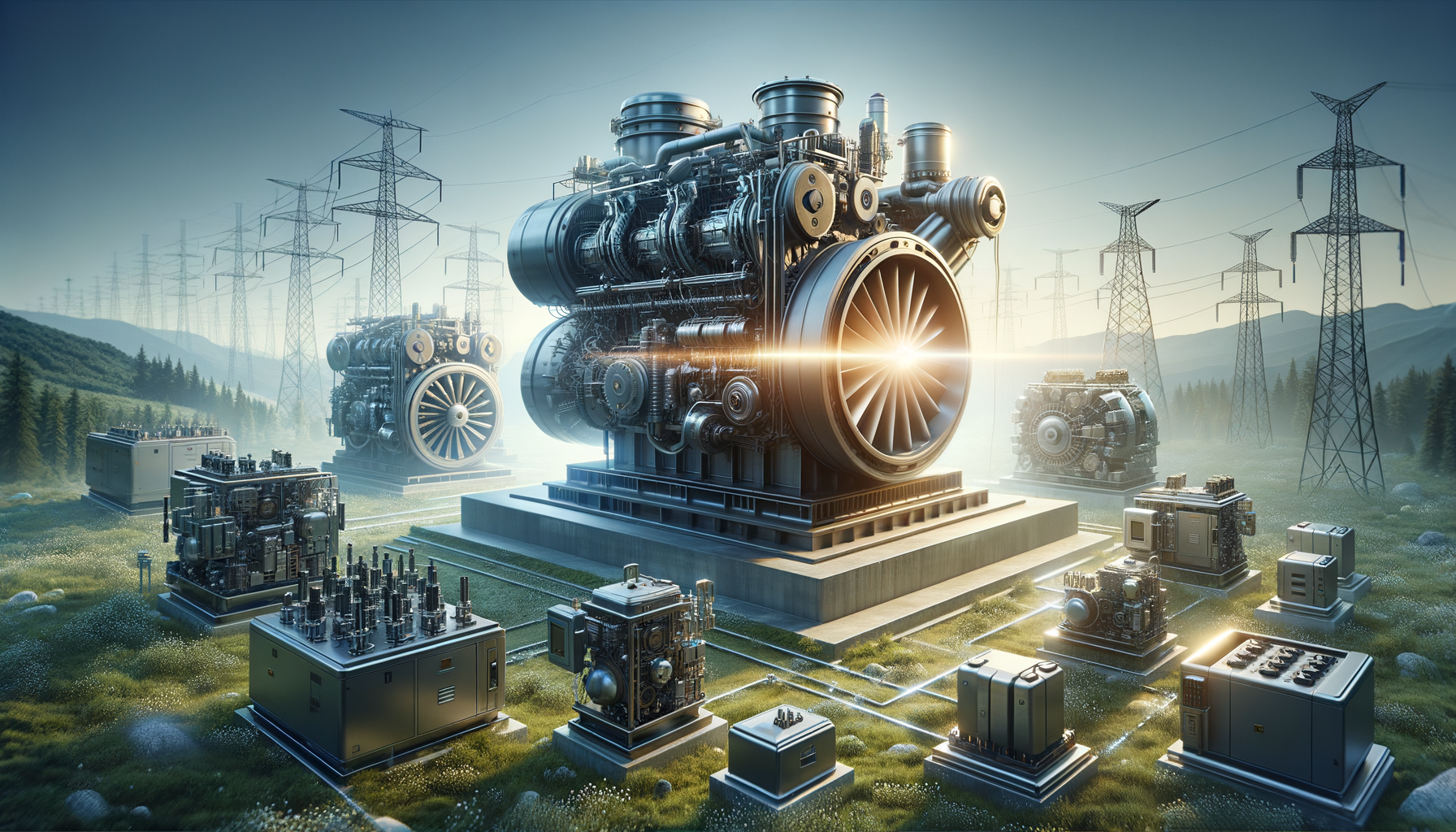The Evolution of Power Generators
Power generators have undergone significant transformations since their inception, evolving from rudimentary mechanical devices to sophisticated machines capable of providing electricity in diverse settings. Initially, generators were primarily used in industrial applications, but their utility has expanded into residential, commercial, and emergency services. The evolution of power generators is a testament to human ingenuity and the relentless pursuit of energy efficiency.
Early generators were mechanical contraptions, relying heavily on manual labor to produce energy. As technology advanced, the introduction of internal combustion engines revolutionized the field. This innovation allowed for more compact and efficient designs, enabling generators to be used in a wider range of applications. Today, power generators come in various forms, including portable, standby, and inverter models, each serving specific needs.
The development of renewable energy sources has also influenced the evolution of power generators. With growing environmental concerns, there is a shift towards integrating renewable energy technologies, such as solar and wind, into generator systems. This integration not only reduces carbon emissions but also enhances the sustainability of power generation. As we move forward, the evolution of power generators will likely continue to be shaped by technological advancements and the increasing demand for clean energy solutions.
Types of Power Generators and Their Applications
Power generators come in various types, each designed to meet specific energy needs and applications. Understanding these types is crucial for selecting the right generator for your requirements. The primary categories include portable, standby, inverter, and renewable energy generators.
Portable generators are versatile units that provide temporary power solutions. They are commonly used in outdoor events, construction sites, and during power outages. These generators are known for their mobility and ease of use, making them a popular choice for temporary power needs.
Standby generators, on the other hand, are permanent installations that automatically supply power during an outage. They are typically used in homes, hospitals, and businesses where continuous power is essential. These generators are connected to the electrical system and are designed to start automatically when the main power supply fails.
Inverter generators are known for their fuel efficiency and quiet operation. They produce clean energy, making them suitable for sensitive electronic devices. These generators are ideal for camping, RVs, and other recreational activities where noise reduction and fuel efficiency are important.
Lastly, renewable energy generators, such as solar and wind generators, harness natural resources to produce electricity. These generators are increasingly popular due to their environmental benefits and potential for reducing energy costs. They are used in both residential and commercial settings to supplement traditional power sources and promote sustainability.
Key Features and Considerations When Choosing a Generator
Selecting the right power generator involves considering several key features and factors. These considerations ensure that the generator meets your specific power needs and operates efficiently. Here are some important aspects to keep in mind:
- Power Output: Determine the wattage required to power your essential appliances and devices. This will help you choose a generator with adequate power output.
- Fuel Type: Generators run on various fuels, including gasoline, diesel, propane, and natural gas. Consider fuel availability, cost, and storage when selecting a generator.
- Noise Level: Noise can be a significant factor, especially in residential areas. Inverter generators are known for their quiet operation, making them a preferred choice for noise-sensitive environments.
- Portability: If you need a generator for outdoor activities or temporary use, portability is essential. Look for lightweight models with wheels and handles for easy transport.
- Maintenance: Regular maintenance is crucial for the longevity and performance of a generator. Consider models with user-friendly maintenance features and readily available parts.
Additionally, consider the generator’s runtime, which indicates how long it can operate on a full tank of fuel. A longer runtime is beneficial for extended power outages. Safety features, such as automatic shut-off and overload protection, are also important to ensure safe operation.
The Environmental Impact of Power Generators
While power generators provide essential energy solutions, they also have environmental implications. Traditional generators, particularly those running on fossil fuels, contribute to air pollution and greenhouse gas emissions. Understanding these impacts is crucial for making informed decisions about generator use and exploring cleaner alternatives.
Gasoline and diesel generators are known for their emissions, which include carbon monoxide, nitrogen oxides, and particulate matter. These pollutants contribute to air quality degradation and have adverse health effects. Additionally, the extraction and transportation of fossil fuels have environmental consequences, including habitat disruption and oil spills.
In response to these challenges, there is a growing interest in renewable energy generators. Solar and wind generators offer a cleaner alternative by harnessing natural resources without emitting harmful pollutants. While the initial investment for renewable generators may be higher, the long-term benefits include reduced environmental impact and potential energy cost savings.
To mitigate the environmental impact of traditional generators, advancements in technology are focusing on improving fuel efficiency and reducing emissions. Hybrid generators, which combine fossil fuels with renewable energy sources, are emerging as a viable solution. These generators offer the reliability of traditional power generation while minimizing environmental harm.
Conclusion: Navigating the World of Power Generators
Power generators play a pivotal role in providing electricity across various sectors, from residential and commercial to emergency services. Understanding the different types of generators, their applications, and the environmental considerations is essential for making informed energy decisions. As technology continues to evolve, the integration of renewable energy sources into generator systems offers a promising path toward sustainable power solutions.
When choosing a generator, consider factors such as power output, fuel type, noise level, and environmental impact. By selecting the right generator for your needs, you can ensure reliable power while minimizing environmental harm. As we navigate the world of power generators, the focus on innovation and sustainability will undoubtedly shape the future of energy generation.








